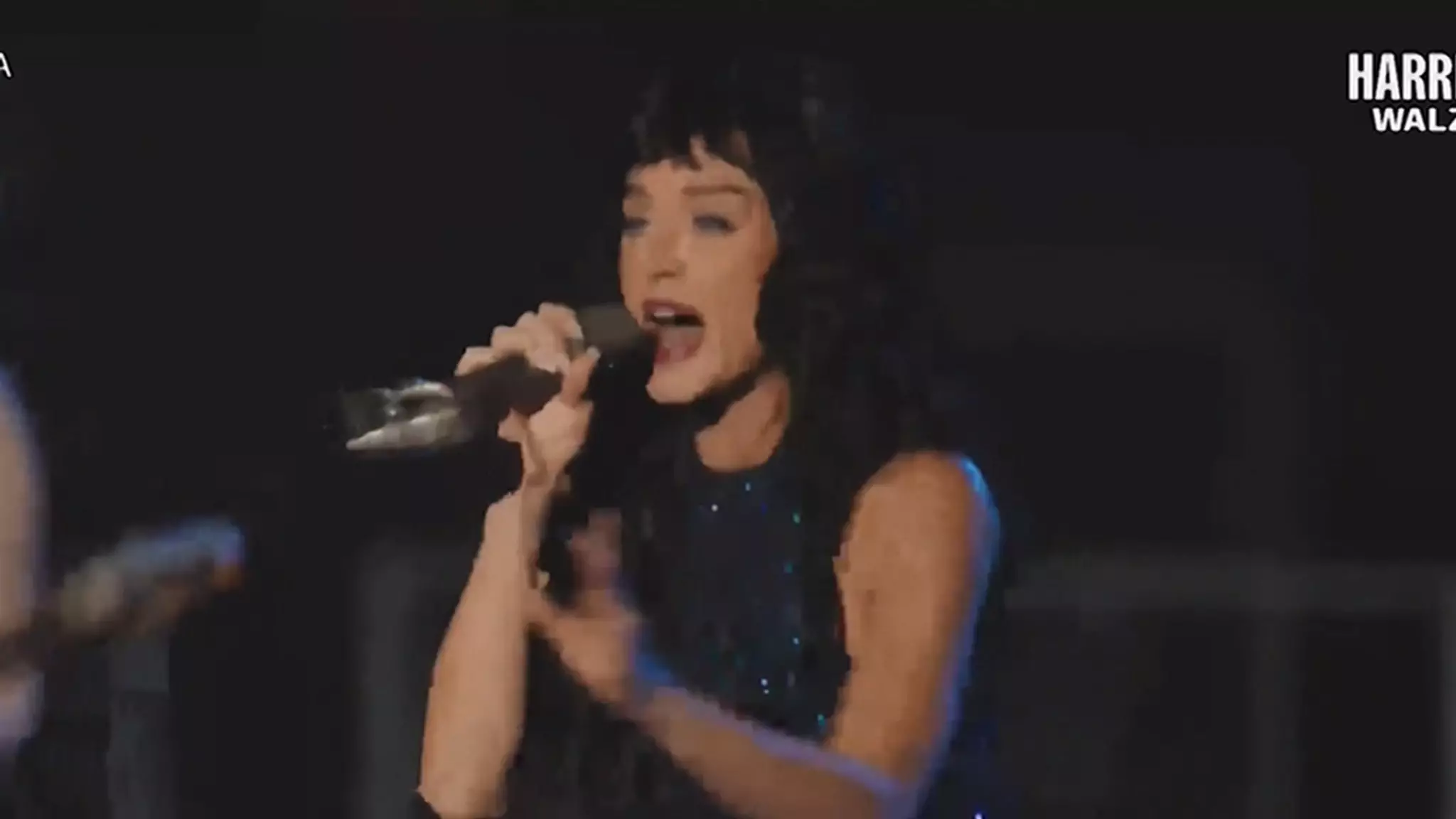In an age where celebrity influence permeates every aspect of culture, the intersection of pop music and political activism is becoming increasingly noteworthy. Recently, pop icon Katy Perry took to the stage in Pittsburgh, dazzling the crowd while also lending her star power to Vice President Kamala Harris’ campaign efforts. In a world where the content of political messages often gets overshadowed by celebrity endorsements, Perry’s performance offers a refreshing take on how stars can engage meaningfully with political causes.
During the rally, Katy Perry not only entertained audiences with her well-known hits such as “Dark Horse” and “Part of Me,” but she also used her platform for activism. With Election Day just around the corner, Perry made a poignant statement affirming reproductive rights by declaring, “It’s my body and my choice.” This moment encapsulated the essence of contemporary political engagement, where artists do not merely endorse candidates but also advocate for specific issues, enhancing their authenticity and connection with younger audiences who prioritize social justice.
Perry’s dedication to the Harris campaign represents a growing trend of celebrities stepping beyond the confines of the entertainment industry to influence political landscapes. By aligning herself with Harris, Perry reinforces the notion that celebrity can be an effective catalyst for political discourse. Her prior endorsement—demonstrated through social media support—evolved into a tangible, in-person expression of solidarity that showcases a commitment to not just promotion, but real action in support of candidates they believe in.
The rally at the Carrie Blast Furnaces wasn’t just a solo act; it also featured performances by other notable figures such as Andra Day and D-Nice. This collective presence underscores a significant shift in how political rallies are conducted, with music and entertainment becoming key components of modern political campaigns. Furthermore, Lady Gaga’s simultaneous appearance in Philadelphia highlights a strategic approach where multiple high-profile figures can energize various demographics and locations, promoting unity in purpose while capitalizing on their individual fan bases.
However, this trend is not without its challenges. As the political atmosphere grows increasingly polarized, celebrity endorsements can elicit as much backlash as support. Candidates like Harris, while receiving admiration from pop stars, also face opposition from their opponents who are equally backed by influential figures. The volatile mixture of celebrity culture and political allegiance has led to a complex dynamic where popularity does not guarantee electoral success.
As the election looms closer, it remains a critical moment for both candidates and their supporters. The collaboration between politicians and celebrities like Katy Perry offers an entertainment-infused approach to civic engagement that may entice younger voters to participate in the electoral process. As the world watches, the outcome will not only shape political futures but also define the potential of celebrity activism in shaping the societal conversation around crucial issues. As we await the results, one thing is certain: the impact of pop culture on politics is undeniable and likely here to stay.

